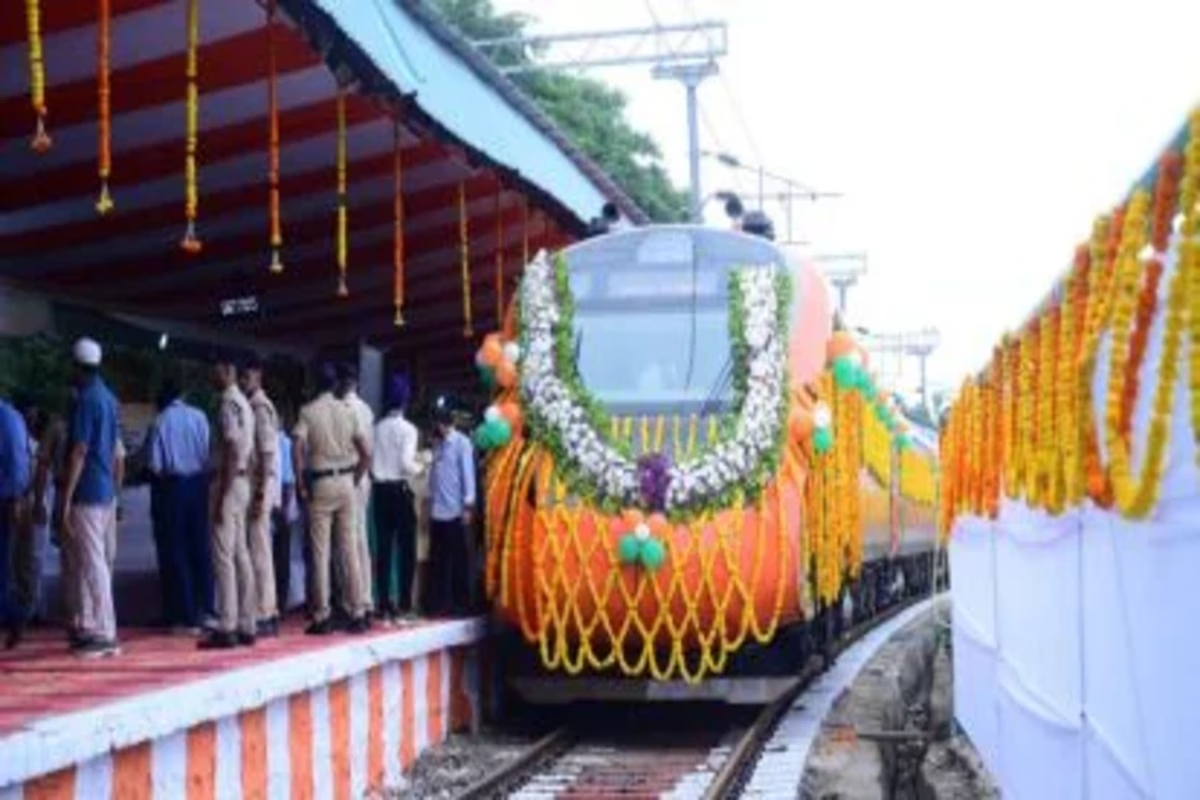The second Vande Bharat sleeper train, jointly manufactured by the Integral Coach Factory (ICF) and Bharat Earth Movers Limited (BEML), has reached Khajuraho, Madhya Pradesh, for its much-anticipated trial run. According to railway officials, this trial marks another milestone in India’s drive to modernize its long-distance rail travel.
Trial Between Khajuraho and Mahoba
A senior ICF official said that the Research Designs and Standards Organisation (RDSO) — the Railways’ R&D wing — has designed the trial run between Khajuraho in Madhya Pradesh and Mahoba in Uttar Pradesh. Following this, the train will undergo speed trials at 180 kmph in Kota, Rajasthan. Within 30 days of the trial, engineers will perform corrections and rectifications to fine-tune the train’s systems for passenger service.
DON'T MISS
Manufacturing Timeline and Expansion
The project’s initial phase includes 10 Vande Bharat sleeper trains, being co-developed by ICF and BEML. The third rake is expected to roll out by November-end, while the remaining seven trains will be delivered by March 2026, which also serves as the project’s completion deadline. Afterward, ICF will independently manufacture the sleeper versions from September 2026 onwards, indicating the growing self-sufficiency of Indian rail manufacturing.
State-of-the-Art Passenger Facilities
The 16-coach sleeper train has been designed with world-class comfort and safety features, offering a premium travel experience for long-distance passengers. Facilities include:
- Modular toilet cabins with showers
- Automatic doors and Wi-Fi
- Enhanced insulation for temperature control
- Fire-resistant walls and talkback communication systems
- ‘Kavach’ collision prevention technology
The train will have a seating and sleeping capacity for 1,128 passengers, offering a balance of luxury and efficiency for overnight journeys.
Towards a New Era of Indian Rail Travel
The Vande Bharat sleeper project represents a significant leap in India’s Make-in-India initiative, showcasing the capability of domestic industries to produce world-class high-speed trains. Once operational, these trains will redefine overnight train travel by combining speed, safety, and comfort, connecting major cities across states like Madhya Pradesh, Uttar Pradesh, and Rajasthan.
